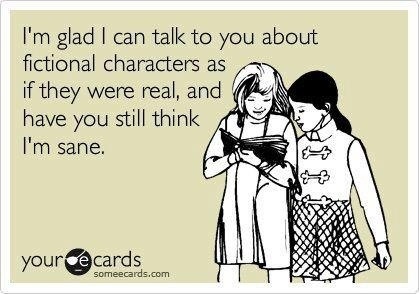So I had the opportunity to catch up on the first two Hunger Games movies. There is a spoiler or two.
No, I haven’t read the books.
Yes, I’m sure the books are better, or at least different.
Therefore my perspective will come from someone who is not comparing and contrasting the books and the movies.
I will simply be sharing my impressions.

I am a mostly peaceful person. I do not like or promote violence, but I do enjoy a horror flick or action movie with plenty of swordplay, gunshots or straight up bludgeoning with fists. Double plus good if the film has all these (like certain choice martial arts movies). That’s not why I like the Hunger Games, though.
The Hunger Games is a story about a person facing conflict of both her heart, and of course the more visceral conflict that accompanies killing people to stay alive. I watched The Hunger Games one day, and then caught up on Catching Fire the day after. As of this post, Mockingjay: Part 1 is in theaters, and I plan to see that fairly soon.
Consider me invested.
The drama between characters – fun as they are at times – is not what holds me though, to be honest. I have heard it said, and often I will recite to other people since I believe in it, that “Characters make stories, not the circumstances they find themselves in.” I believe I read that in Stephen King’s On Writing.
I book I would recommend to anyone pursuing the craft.
Anyway, I’m finding that what has me interested in The Hunger Games is, in fact, not so much the cast but, in direct contrast to that recitation, the setting and the circumstances.
Granted there are holes. “The System” in place feels crafted out of convenience; while we have a glimpse of the history and a rudimentary understanding of why things are the way they are, it seems like quite the jump. This is a “what if” book, much like Brave New World, or any number of dystopias, where we the situation, but not – to me – a clear or feasible reason for how it came about.
The films do not give much of an in-depth depiction of how each of the districts contribute to the plutarchy / plutocracy (take your pick); we have glimpses of what appears to be a Mining District, a Black District (though we don’t know what they do there except remain under very obvious segregation), and a bakery somewhere. I’m willing to let myself believe that the books go into more detail, or perhaps provide some descriptions, of how big these districts are and some more economic insight into how this system is plausible. The rich folk need droves of poor people to do dredge work, and the poor folks need the rich because… oh.
Well, this’s how revolutions start.
[The next line is a spoiler.]
Besides, the final moments in Catching Fire left me scratching my head. Was that really part of their master plan, the “flaw in the system” they were going to exploit? To have Katniss fire a lightning-charged arrow into the sky?
Why would the government green-light sending techno-geniuses into a technology-controlled environment?
Because Plutarch let it happen?
Seems a bit flimsy, as some of these movie-adaptations tend to be.
There’s plenty of criticism for The Hunger Games being some Battle Royale clone, and when you distill the plot down to one or two sentences, on the surface the two stories might seem quite alike. I wondered that myself, having known the basic premise of The Hunger Games since it came out – as people I’d known read it and shared summaries with me. Having seen Battle Royale, I can tell you that the only thing these two stories have in common is: a pile of unwilling people, many of whom are teens, pit against each other in an arena-like harsh environment.
Old relationships are strained, new relationships are formed, and you might go so far as to say that a person’s true self is revealed under such conditions.
After all, I am a firm believer in the human animal as just that. Another animal.
In any case, here’s what they say about the Hunger games being a copy of Battle Royale over at T.V. Tropes:
“The term has been used to refer to The Hunger Games — a book series with a similar premise to Battle Royale — in a derogatory manner by those who feel the later series was a rip off (the author of The Hunger Games maintains she knew nothing of Battle Royale when she wrote her books, and at any rate, there have been works before Battle Royale which use similar themes – even Stephen King has written two).”

So, with all that said, I’ll tell you what I do like about it.
I get fired up watching this. Revolution is something with which I’ve always had a fascination. It’s easy to hate the government in The Hunger Games, but considering these works are considered Y.A., so the generalization of a Bad Government is easy to allow. No worries there. Therefore it’s easy to feel sympathy for the characters under such a regime, but I find myself sitting there and wondering:
Why is it taking three-quarters of a century for people to rebel again?
Chances I would end up as one of the first people out of whom such a government would make an example to the rest.
That happens when you’re stubborn, you’ve got a big mouth, and have a problem with authority.
So in spite of the teen melodrama and love triangle stuff that – honestly – I get tired of watching really fast, it factors into the plot in a way that only would ever happen in a book. Or a movie. All I can tell you is that I’m thoroughly stoked to see the Capital burn.
